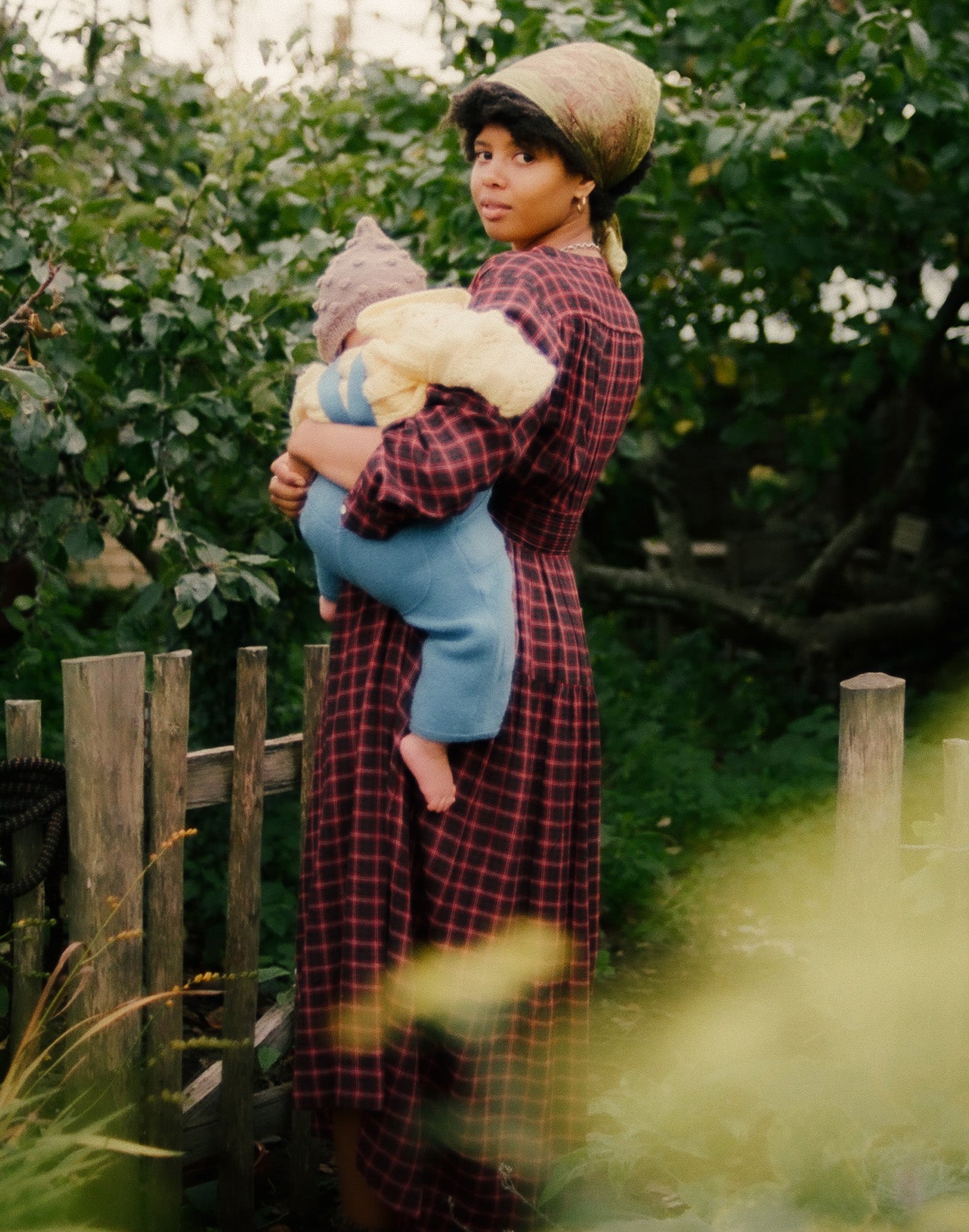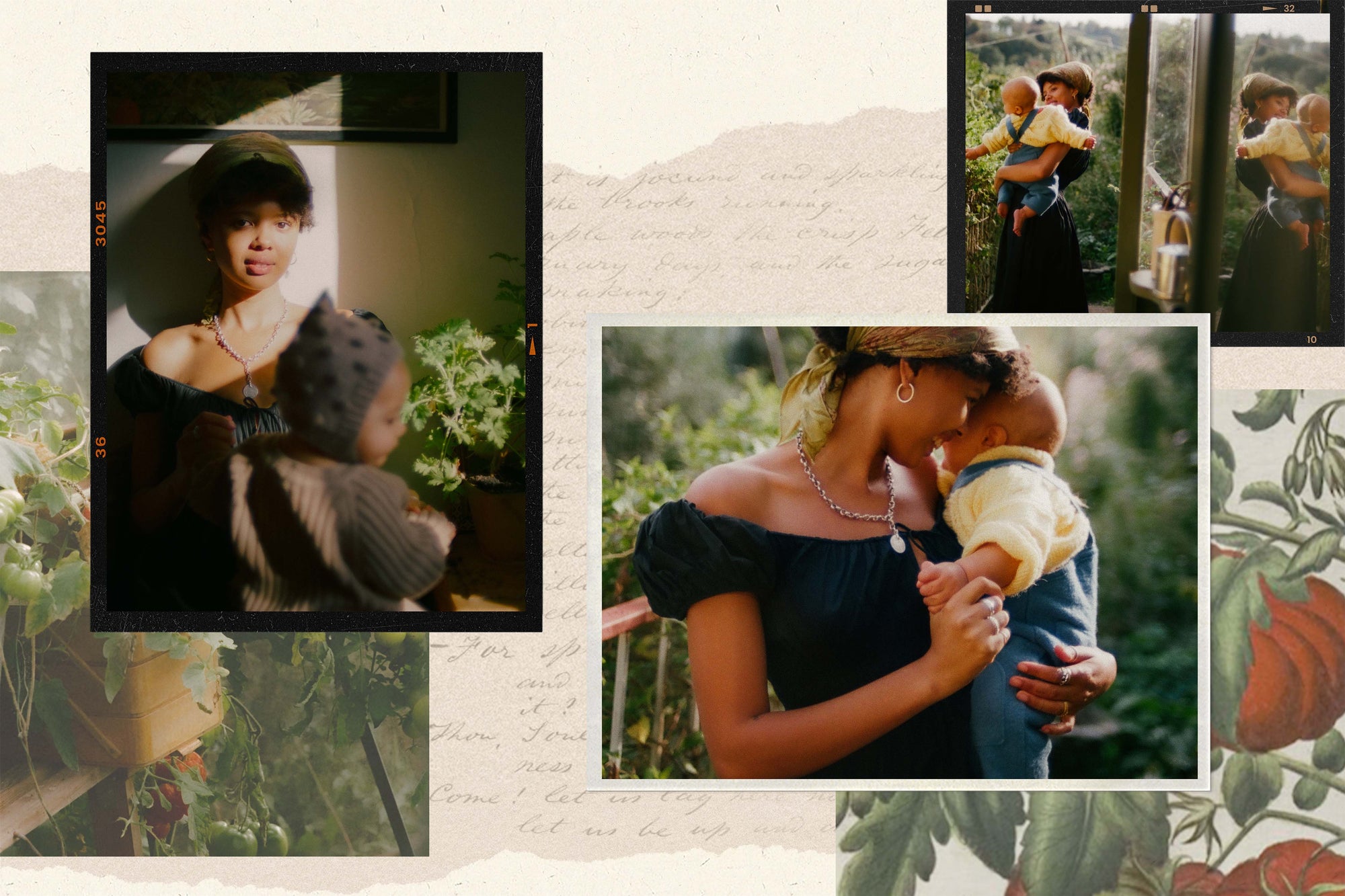Cultivating Joy with Poppy Okotcha
Known for her vibrant captures on social media of colorful wildflowers and carefully tended gardens, Poppy Okotcha relishes in time spent outdoors. Poppy, who left a modeling career in the fashion industry for a slower life in the English countryside, is a trained horticulturist and regenerative grower, sharing gardening, foraging, and cooking tips with her community. We chatted with Poppy about everything from community gardens to her musings on recently becoming a mother.
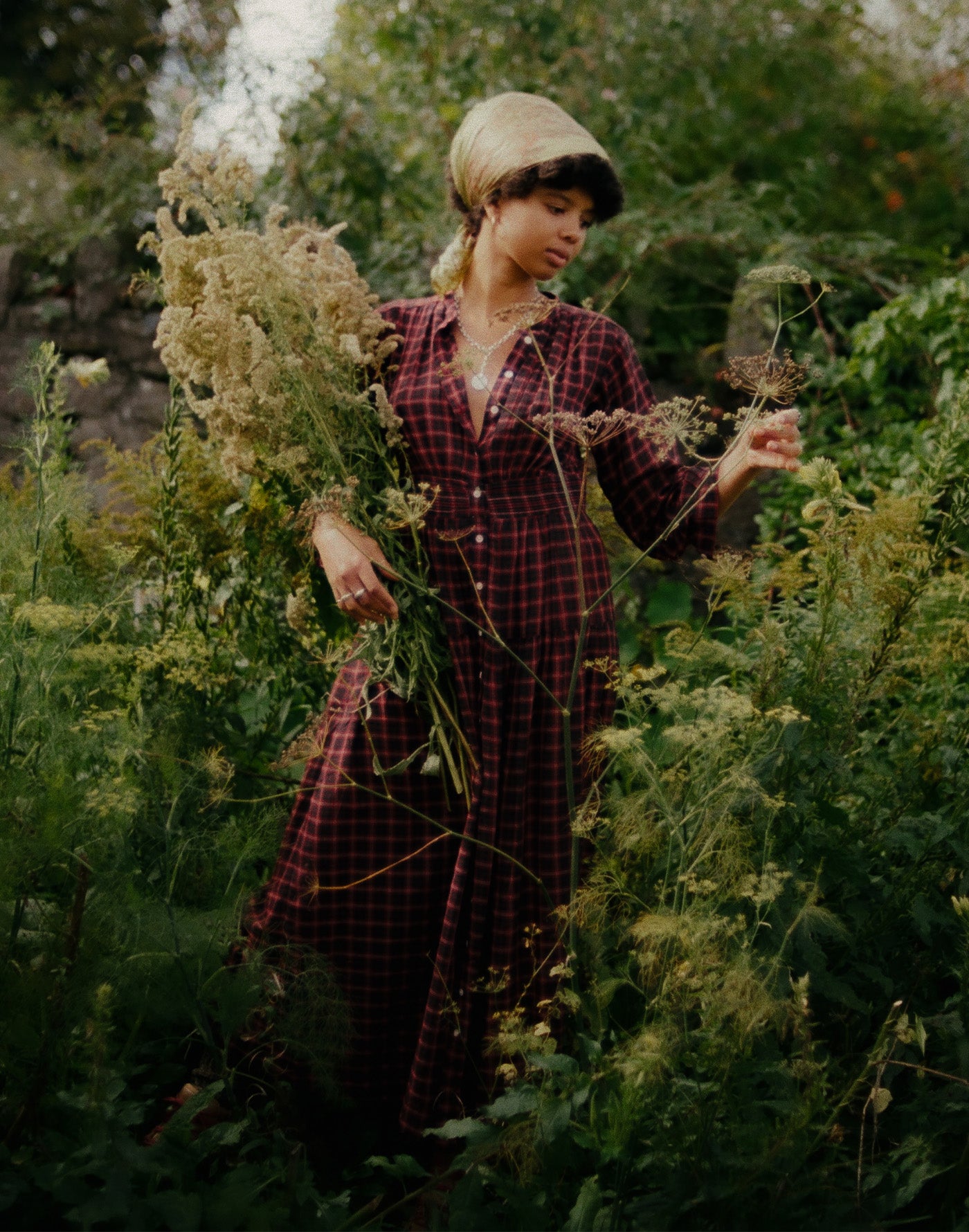
Poppy wears the Annika Dress with her own scarf
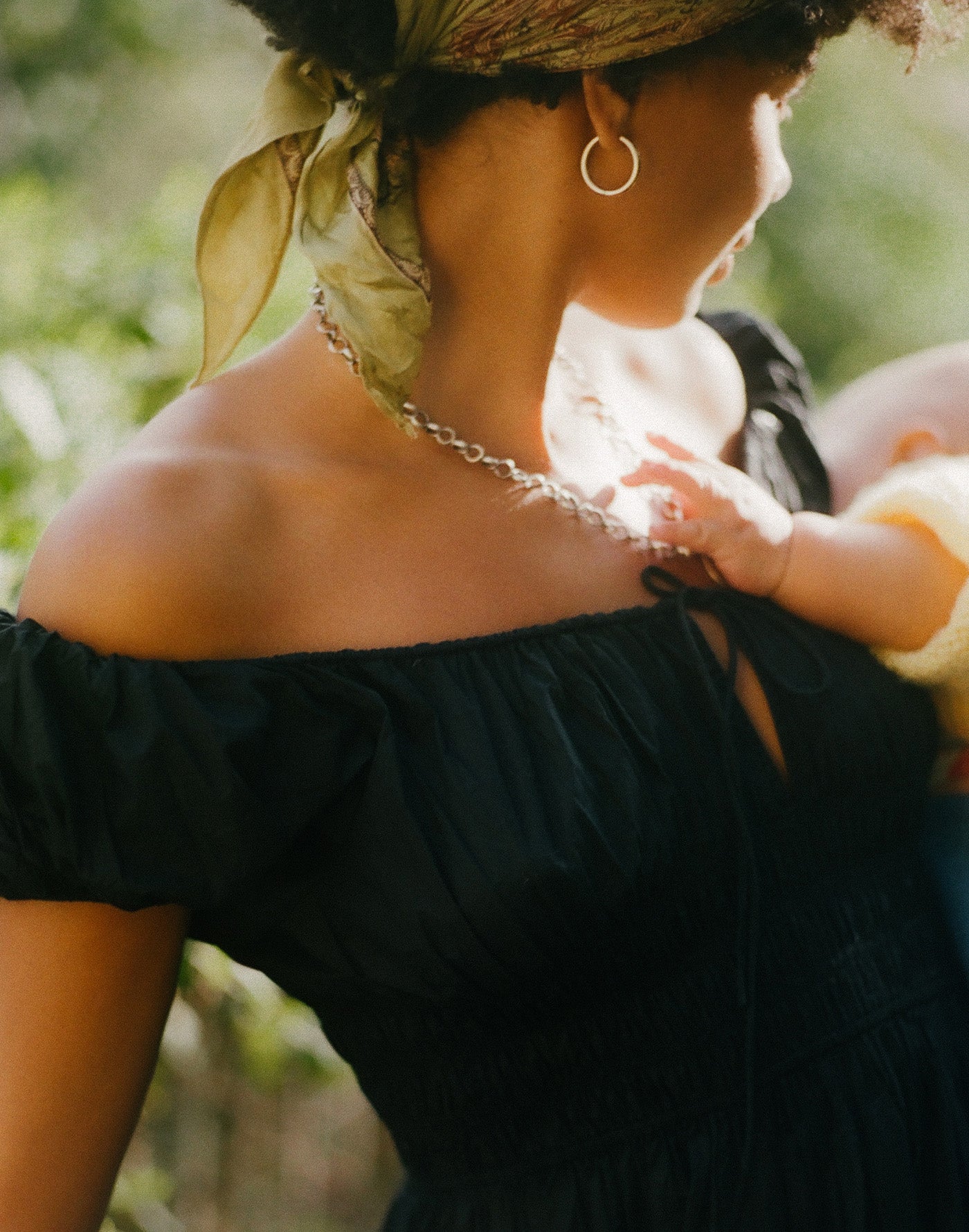
You made a big leap, leaving a career in the fashion industry as a runway model to pursue horticulture and farming. What pushed you to make that jump?
I was working in fashion and had begun to understand the ways in which fashion was contributing to global warming, and the other various human rights [issues] and ethical issues surrounding the industry. I hadn’t realized the reality when I started in the industry, and it was slowly beginning to reveal itself. At the same time, I was not happy—I was struggling with the fast-paced lifestyle and the way in which the industry demands you to give everything to it. I knew I wanted a change, and to do something that was rooted in sustainability and joy at the same time.
I became more and more inquisitive about food and farming—ultimately, when you start to look into supply chains, everything leads back to the land. I wanted to understand how land could be tended in a way that is good for people and for the planet, because not only is the land the origin of so many materials, but it’s also the thing that sustains the communities. I started growing my own food—I was living in a houseboat in London, and I began tending to a garden on the roof of our boat. I then started doing some traineeships at parks, joined a community garden, and, eventually, began sharing information online, doing talks, and writing. I realized I could communicate this bigger, urgent story of the importance of stewarding land, in a way that felt accessible to people—through the story of a garden.
“We are committed to each other, through our commitment to our community garden. I’ve just had my little baby, and I’ve hardly been working at all, yet I’m able to go there, harvest produce, and lean on the other members of the community.”
- Poppy okotcha
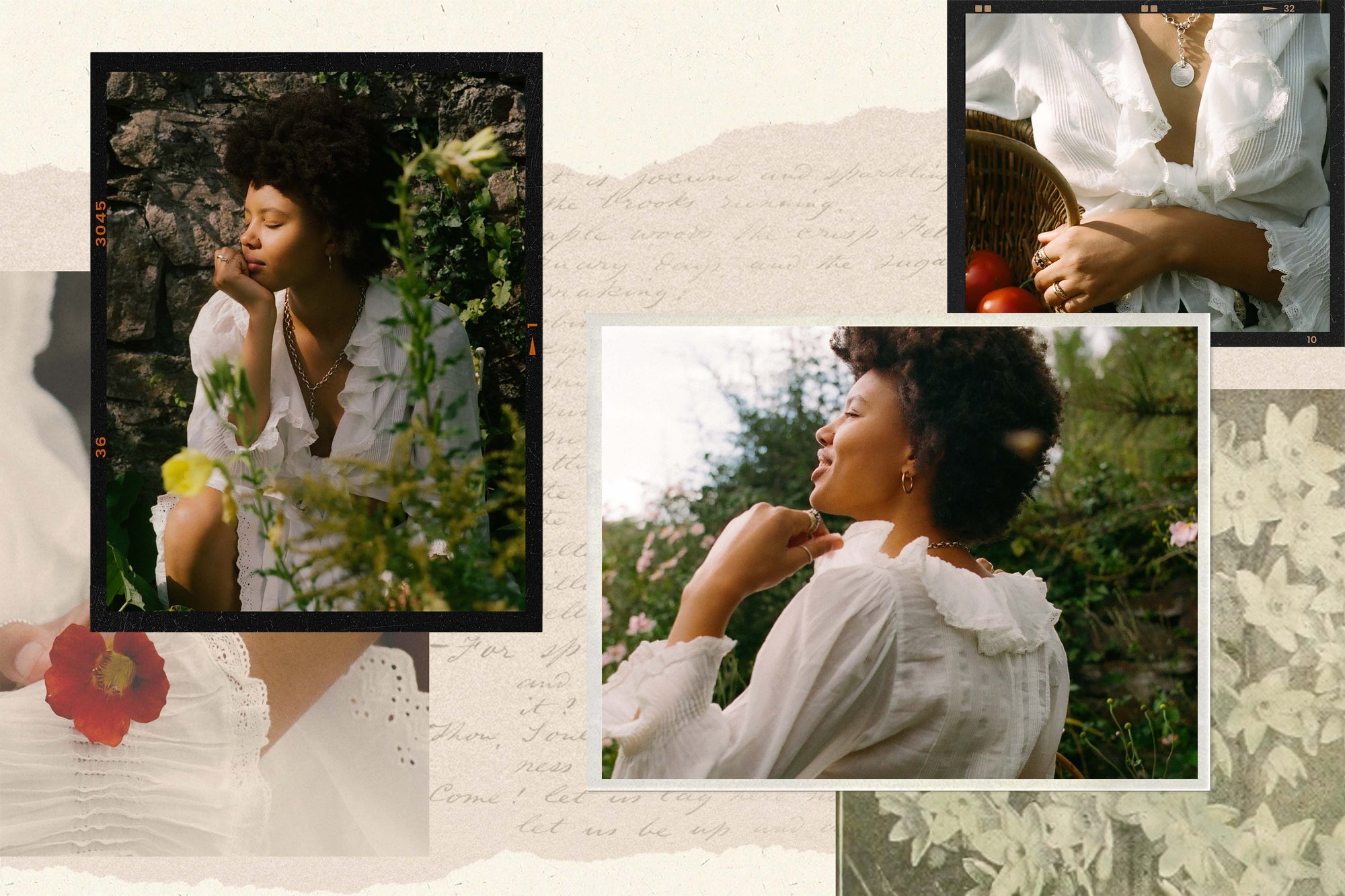
Poppy wears the Hardy Top and Sebastiane Skirt
What does a community garden look like? Can you tell us a little about the garden you tend to?
They can look so many different ways. Before my current garden in Devon, I was involved in gardens in London. Community gardens in urban places can be particularly exciting because there’s so much cultural exchange there. Not only that, urban spaces often are lacking in access to greenery, so the gardens are that much more valuable.
I live in the countryside now, and the community garden I work at is a market garden. What that means is we grow fruits, vegetables, and flowers, and it’s set in a four-acre plot of land that’s managed for wildlife. There’s a group of us who turn up once a week and spend a day tending the plot, and another facilitator and I guide the sessions and organize the resources. Every week, everybody takes home a box of fresh produce.
The people who come and join the community garden might not necessarily know how to garden (or they might be really experienced!), but we work to bring everyone together so that everybody is learning something from one another. The idea is that it’s a way for people to connect with their locality [neighborhood] with good food. It’s high quality, organic produce, for free.
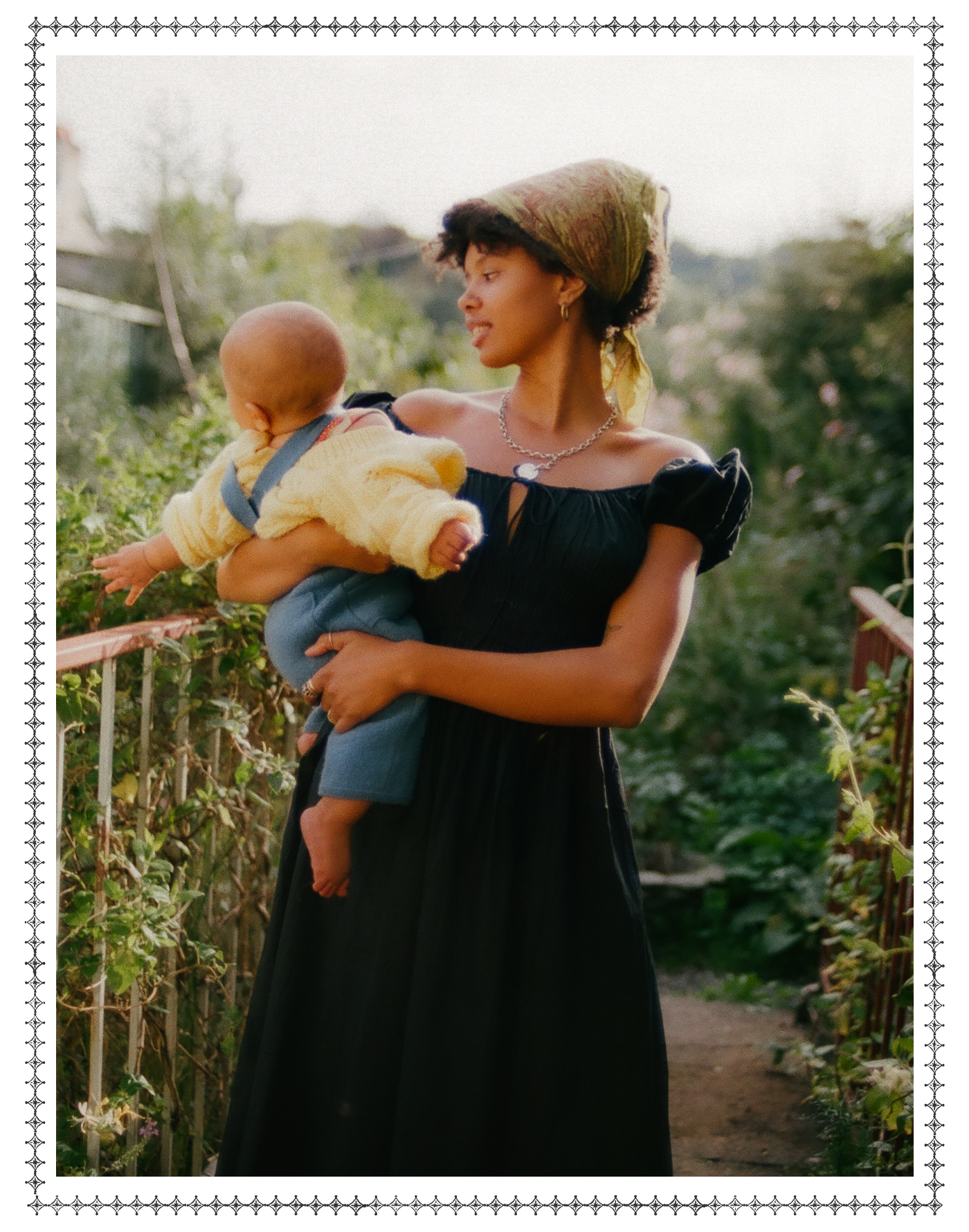
Poppy with her little one; she wears the Quinn Dress and her own scarf
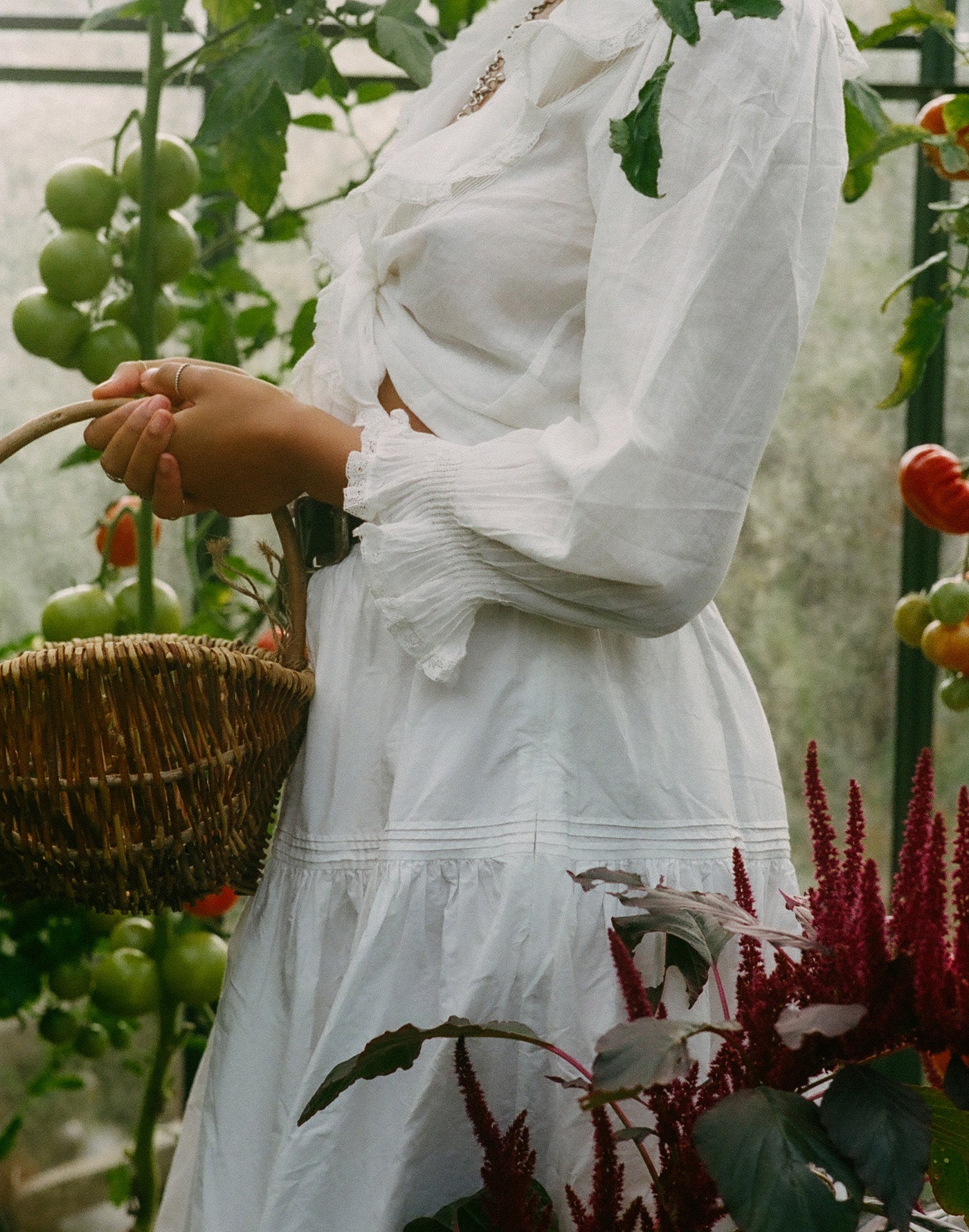
What’s the greatest benefit of a community garden?
What we’ve found is that the most valuable benefits are the community that is built and the connections that are made. That’s what brings people back each week—everyone wants to hang out with one another, which is really special. As an adult, it’s actually quite rare to have a sort of project that you collaborate on, in a playful capacity, with other people.
If you want to build community, you’ve got to start with an activity. If there is a task, it will bring people together. What ends up happening is that we are committed to each other, through our commitment to our community garden. I’ve just had my little baby, and I’ve hardly been working in the garden at all, yet I’m able to go there and harvest produce every week for free. I’m able to lean on the other members of the community.
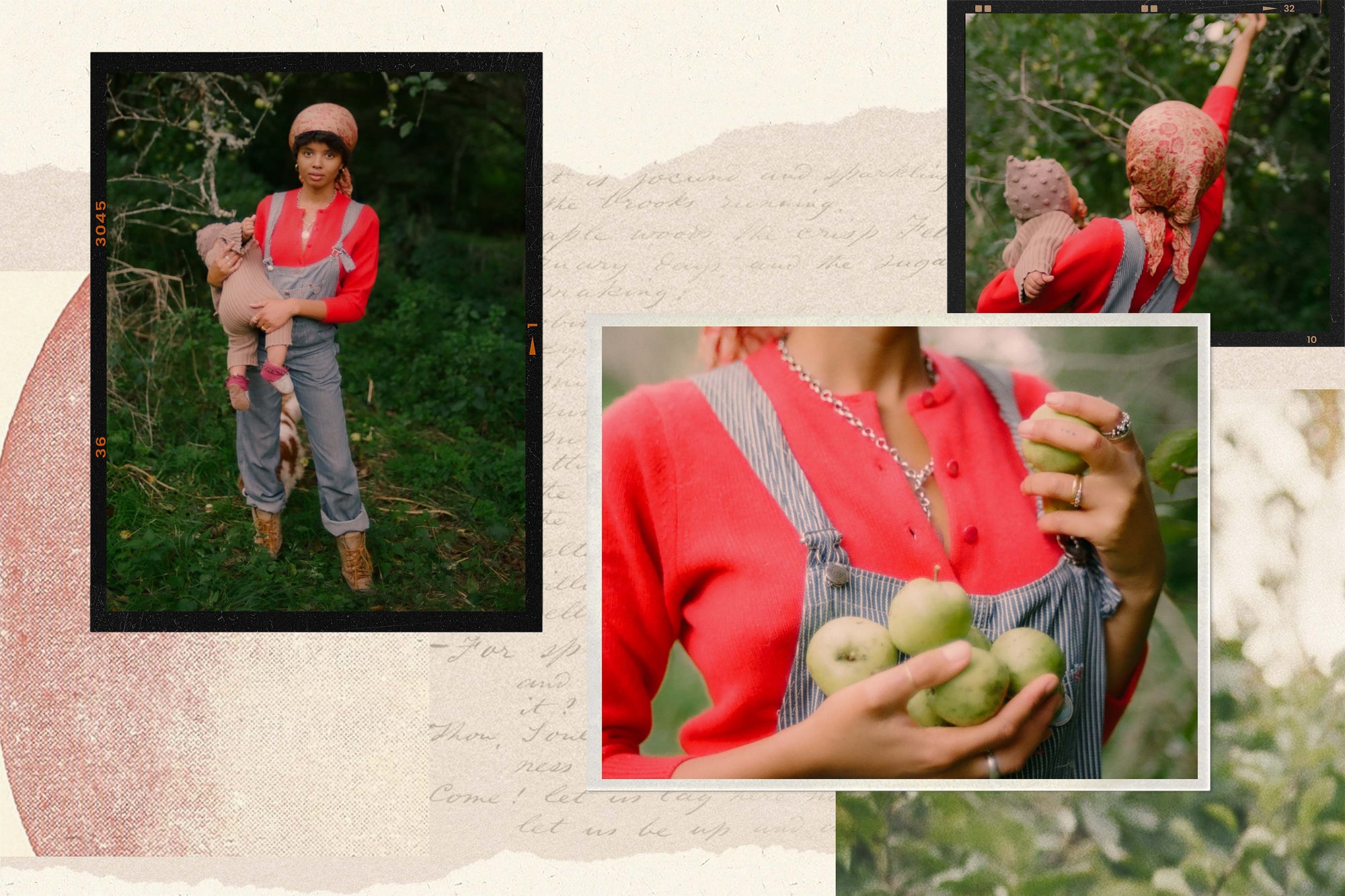
You grew up between the United Kingdom and South Africa. How has that shaped the way you think about land, gardening, and sustainability?
It’s shaped me profoundly. When we were living in South Africa, it wasn’t too long after apartheid had ended, and although it was no longer in place, the impacts that racial segregation had had on the communities were still very visible. Growing up in that environment instilled in me a very strong sense of justice, because I could see what an unjust system did to people. That’s also partly why I wanted to get into food growing, because I felt like I wanted to do good by the world.
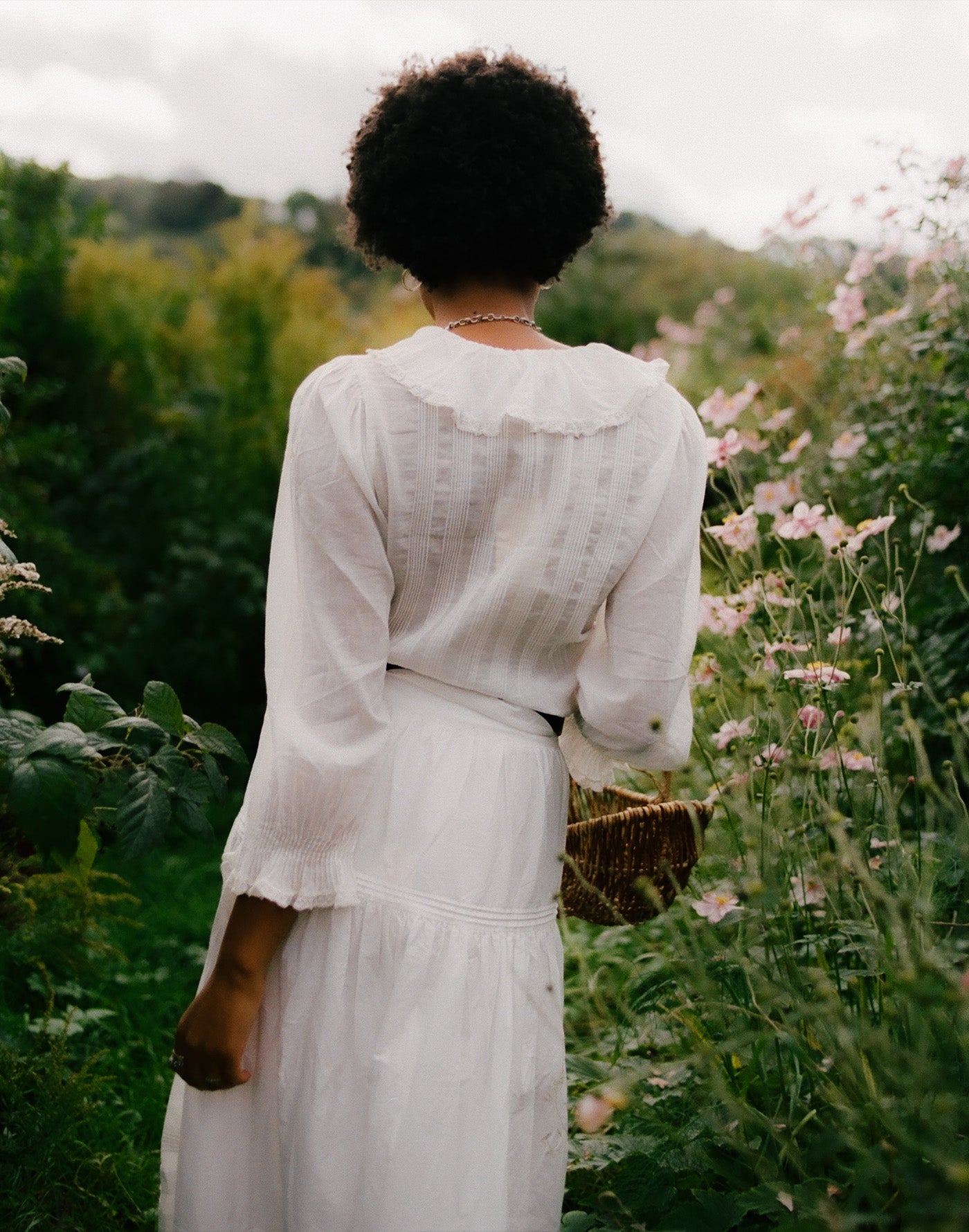
You recently became a mother (congratulations!). What has been best advice you’ve received?
It’s been transformational. Some of the best advice I’ve received is that everything is temporary, and to cherish that fleetingness. It makes the hard times easier, and the good times so much more precious. Even though they may be awake in the night, or crying a lot, the thought that it's all temporary helps you get through it. And then the moments where they just snuggle in your arms and gaze at you quietly, that’s temporary as well—so you cherish it even more.
Any words of advice for those who may be interested in gardening but don’t know where to begin?
Start simple. Focus on one particular crop that you love, say it's tomatoes, or strawberries, or squash. Research that crop, figure out whether your garden is appropriate for growing it, and then really focus on tending that plant and getting it right. Make sure you grow several—as back-up! And then, each year you can add another plant to your collection. You'll be doing a few plants well, rather than lots of plants badly. And that can be a far more pleasant experience.
